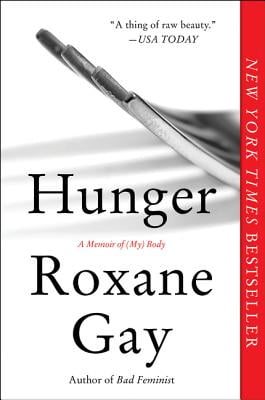


I do, however, live in a world where the open hatred of fat people is vigorously tolerated and encouraged. There is truth to the former accusation and I reject the latter. She candidly writes: "I have been accused of being full of self-loathing and being fat-phobic. This social conditioning led her to eat compulsively with the hopes of becoming as repulsive to men as possible-to protect herself from being hurt again. As a child, Gay observed the ways in which fat people were stared at in disgust, so she concluded that fatness was undesirable. "Haitians love the food from our island, but they judge gluttony," she explains (55). The memoir also becomes a space for Gay to grapple with her own internalized fatphobia. Instead, she continues to eat to become solid, stronger, safer.

As an adult, she acknowledges her regret for not turning to her parents for support (who would not find out about the assault until years later). Too terrified and embarrassed to confide in her parents the unthinkable violence that she experienced as a child, Gay finds herself eating to cope and to take up more space. "She is respectful, studious, hardworking," and "never forgets the importance of her heritage" (55). "A Haitian daughter is a good girl," she narrates. Throughout the second section of the book, Gay details the pressures of growing up as a Haitian American with wealthy, middle-class parents and her struggle to fulfill their expectations. Going forward, she explains, her life became split into two-before she was raped and after she was raped. She hopes that by sharing her story along with others who have shared theirs, more people will become appropriately horrified by the immense and brutal suffering that is so often born of sexual violence. In Part 1, Gay bravely recounts her childhood experience as a victim of sexual assault.

The memoir is divided into six parts with eighty-eight brief chapters that often read like personal diary entries-which is no surprise as Gay first gained Internet fame as a diarist on Tumblr. This is not a story of triumph, but this is a story that demands to be told and deserves to be heard" (5). In the opening chapters of the book, Gay warns her reader that this will not be a memoir about weight loss or overcoming rather, it is a true story about unruly bodies that are often "ignored or dismissed or derided They think they know the why of my body. Laced with beautiful, compelling, and vulnerable moments of personal narrative and reflection, Hunger details Gay's journey to self-acceptance and freedom from the ghosts of her past. Her most recent work, Hunger: A Memoir of (My) Body, is an honest and raw exploration of her personal struggle with weight, body image, disordered eating, and survivorship. Roxane Gay is an American writer, editor, and social commentator, best known for her New York Times best-selling essay collection Bad Feminist (2014) and her novel An Untamed State (2014).


 0 kommentar(er)
0 kommentar(er)
